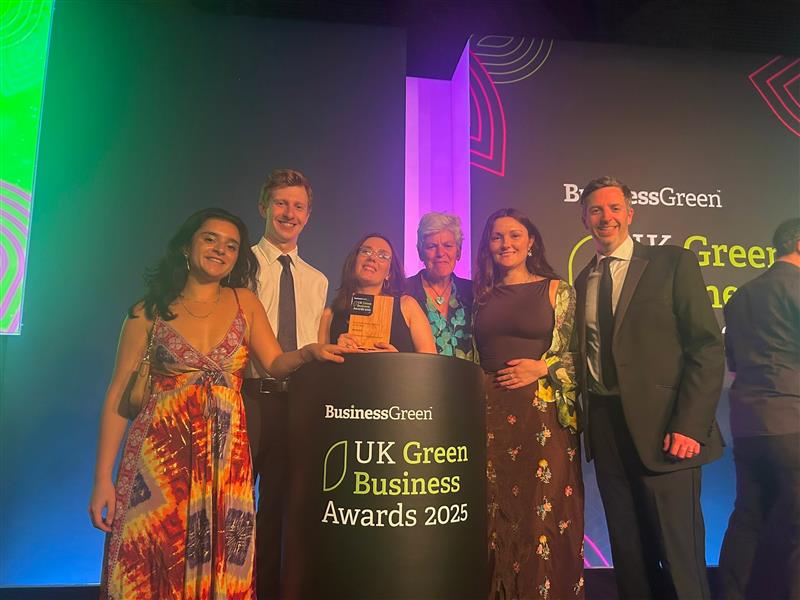Top 8 climate change campaigns of 2018
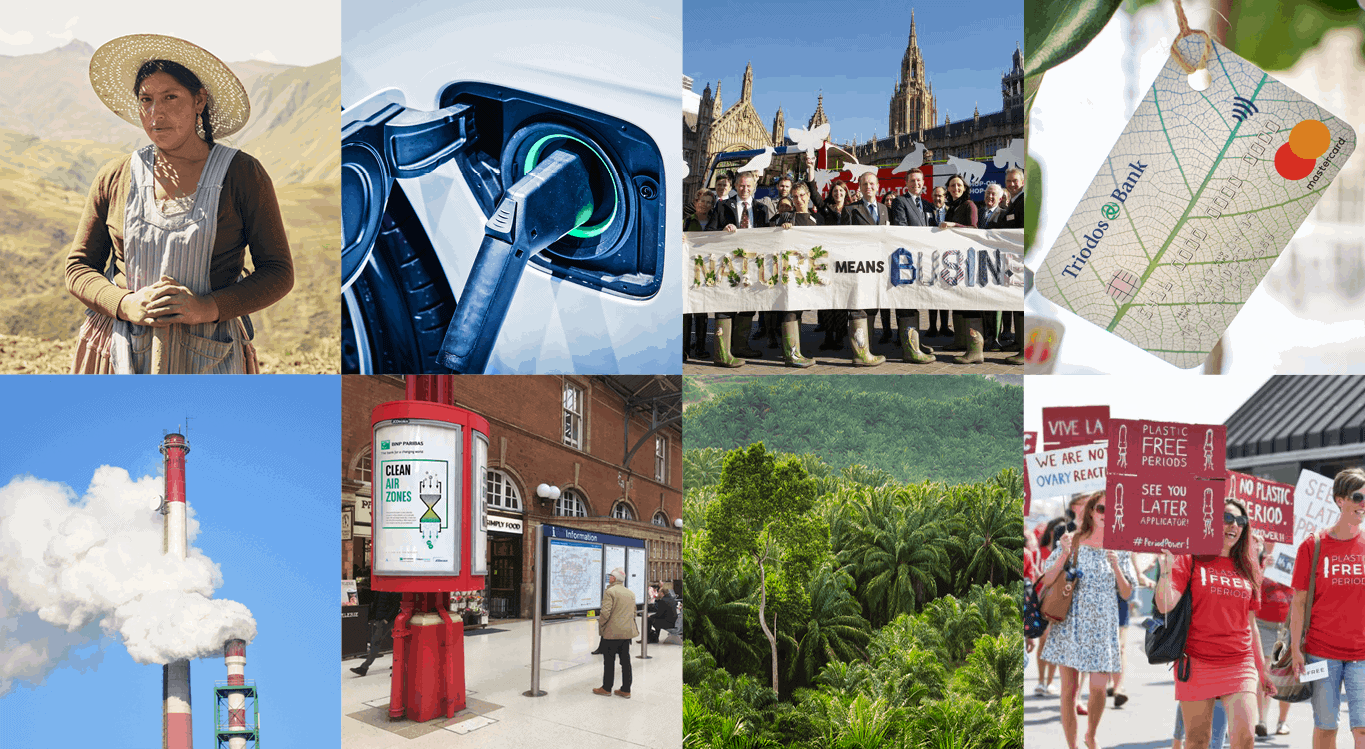
2018 has been a pivotal year in the fight against climate change. The UN Intergovernmental Panel on Climate Change (IPCC) report set global alarm bells ringing and woke the world up to the dire impact climate disruption is having on our planet.
Last week Sir David Attenborough echoed the IPCC’s warning during his address at COP24:
“We are facing a man-made disaster of global scale. If we don’t take action, the collapse of our civilisations and the extinction of much of the natural world is on the horizon.”
Greenhouse was established 12 years ago with a clear mission: to use the power of communications to drive positive social and environmental change. Since day one we have worked exclusively with the pioneers that are leading the way in creating that change, disrupting markets and transforming sectors as diverse as food, finance and fashion. We focus on where we can create the greatest impact, helping our clients communicate and scale the ideas, products and services needed to create a brighter, more sustainable future.
2018 has been a momentous year for Greenhouse. To mark it, we reflected on 8 change-making campaigns that we’re proud to have been a part of.
Here are the top 8 climate change campaigns of 2018:
- Unfriend Coal: Making coal uninsurable
- Pivot Power: Future-proofing energy and EV networks
- Triodos: Ethical banking via crowdfunding
- Airlabs: Tackling air pollution with clean air zones
- Gaia Foundation: We Feed the World
- Nature Friendly Farming Network (NFFN): Oxford launch
- Roundtable on Sustainable Palm Oil (RSPO): Global event
- Natracare: Plastic free periods
Making coal uninsurable
Unfriend Coal aims to accelerate the global phase-out of coal by persuading insurers to end cover for mines and power plants and divest billions from the industry.
Greenhouse has led more than 20 international media campaigns, working with supporters like Greenpeace and Avaaz, which created sustained pressure on the world’s biggest insurers, highlighting leaders and laggards and exposing loopholes in companies’ coal policies.
Since November 2017, Europe’s four biggest primary insurers and the world’s two biggest reinsurers have restricted cover for coal or tightened existing policies. Insurers have now divested coal from $6 trillion of assets, up from $4 trillion a year ago.

Future-proofing energy and EV networks
Greenhouse helped launch Pivot Power’s plans to build a world-first network of grid-scale batteries and rapid electric vehicle (EV) charging stations across the UK. The exciting £1.6 billion programme will provide infrastructure to future-proof the energy system, accelerate the EV revolution, and underpin clean air policies.
The network will store 2GW of electricity, enough power to supply 235,000 average homes for a day, giving National Grid a huge resource to support more renewable generation and the demands of mass EV charging.
The news of a commercially viable scheme aligned with key government priorities resulted in meeting requests from a range of leading institutional investors, local authorities, plus interest from influencers from the Home Secretary, to German Ministry for Economic Affairs and Energy.
Pioneering ethical banking with a crowdfunding platform
In February this year, Triodos became the first UK bank to launch a crowdfunding platform, enabling people to directly invest in organisations delivering social and environmental impact.
Greenhouse launched the platform with 3 projects – all of which hit their crowdfunding targets, reaching a combined total of over £10m. This money enabled a 5MW operational solar farm in Somerset to be brought into community ownership, a renewable ground source heat pump company to expand nationwide, and a charitable group of companies to provide 14 new homes for people with complex learning disabilities.
National publications including The Guardian, Independent and the FT covered the launch, helping to raise the profile of Triodos Bank’s crowdfunding platform, which to date has raised almost £19m.

Tackling air pollution with clean air zones
Air pollution causes half a million premature deaths in Europe each year and more than 90% of the world’s young people are breathing toxic air.
Greenhouse supported Airlabs, a team of atmospheric chemists, with two breakthrough clean air zone launches in 2018. The first was a partnership with eco-champion Stella McCartney to open the UK’s first ever clean air store, where 95% of the toxic fumes from the busy high street were successfully removed.
Later in the year, the pioneering tech company partnered with London businesses including BNP Paribas, JC Decaux and Chiltern Railways to launch the world’s first ‘clean air station’ at Marylebone. Both projects garnered international attention – with coverage including Reuters, The Washington Post, Sky News and BBC Radio 5 Live – and proved that the right technology is available and ready to be rolled out across cities globally, given the right investment.
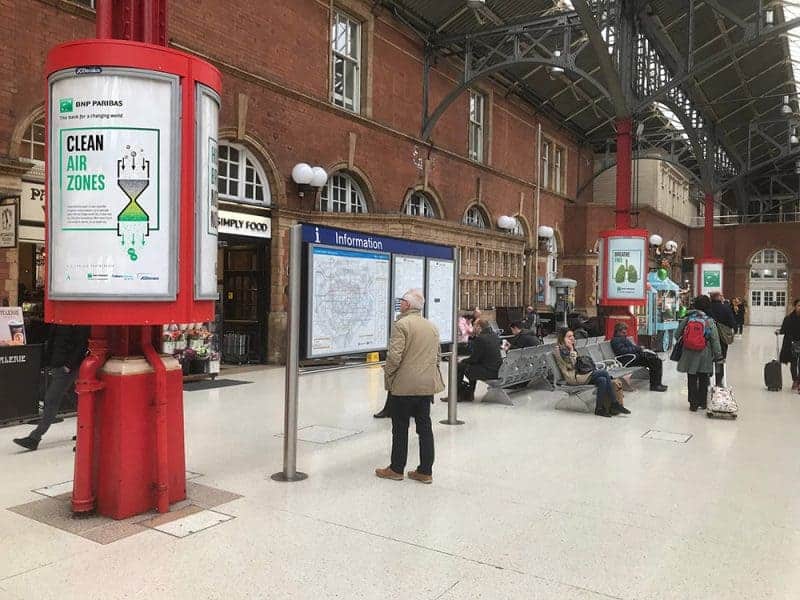
Celebrating smallholders who produce 70% of the world’s food
To mark World Food Day 2018, we partnered with the Gaia Foundation to launch We Feed the World – a global photography exhibition capturing the triumphs and tribulations of smallholder farmers who produce 70% of the world’s food. The exhibition, accompanied by a ten-day programme of talks, films and workshops, showcased farming communities across the globe that practise regenerative agriculture, ensuring food security for generations to come.
We developed compelling narratives for over 30 smallholder farmers around the world to sell-in to the media. We also created a comprehensive media pack containing photography, case study stories and supporting materials to help the press tell the personal stories of each farmer. We achieved phenomenal coverage in outlets including The Guardian, Telegraph, Independent, and National Geographic, with a combined reach of over 8 million.
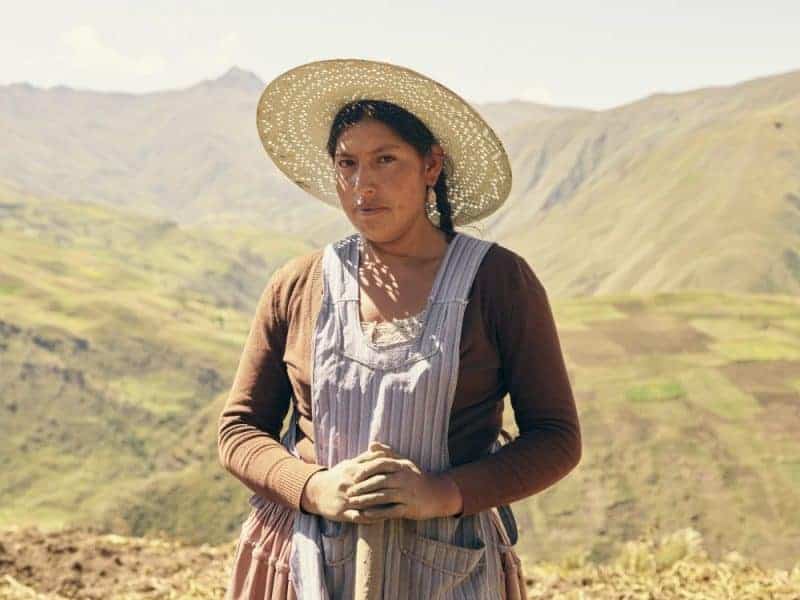
Bolivia, El Choro, Photographer Nick Ballon
Giving nature-friendly farmers a voice
Farmland birds have declined by half and we are losing our healthy top soil at a worrying rate. Around 75% of UK land area is used for agriculture and farmers hold the key to protecting and enhancing our landscape and wildlife. Brexit provides our government with an opportunity to revolutionise farming policy and secure food security for generations to come.
In January, Greenhouse launched the Nature Friendly Farming Network (NFFN) at the Oxford Real Farming Conference, uniting farmers across the UK who are calling for effective and immediate policy change to reward farmers for delivering public goods.
During the launch, over 20 TV and radio crews visited nature-friendly farms across the country and farmers were able to demonstrate that farming in this way not only produces healthy, sustainable food, but also protects and enhances our countryside. Hundreds of farmers and members of the public committed their support for pro-nature farming policy and signed up to the network – now widely recognised as an important political voice for the future of farming.

Driving a sustainable palm oil industry
Used in 50% of products found in supermarkets, palm oil is one of the world’s most prolific commodities. Often criticised as a major driver of deforestation and human rights violations, the palm oil industry has made significant headway in the last few years with certified sustainable palm oil on track to become the norm.
Greenhouse ran a successful digital campaign for the Roundtable on Sustainable Palm Oil (RSPO) global event in Sabah, Malaysia, stimulating debate amongst key industry influencers and consumers. Greenhouse attended and live-tweeted from the event, sharing breaking news and amplifying the RSPO’s message on a global scale – resulting in hashtag reach of 40 million during the conference week. The event was marked by the adoption a new standard including “No Deforestation, No Peat, No Exploitation” requirements, a historic moment in the industry.

Campaigning for plastic-free oceans
Around 700,000 panty liners, 2.5 million tampons and 1.4 million sanitary towels are flushed down the toilet in the UK every day. We developed a PR and digital campaign on behalf of Natracare during #PlasticFreeJuly, to raise awareness of the impact that flushing period products has on the marine environment and encourage consumers to use plastic-free alternatives.
We partnered with the Marine Conservation Society to release statistics on the volume of sanitary products polluting our coastline and launched the campaign with a plastic period protest march on Brighton beachfront. Greenhouse achieved more than 40 pieces of coverage, including features in The Independent, Daily Mirror, Huffington Post and Elle, and 75,000 views of the campaign film.
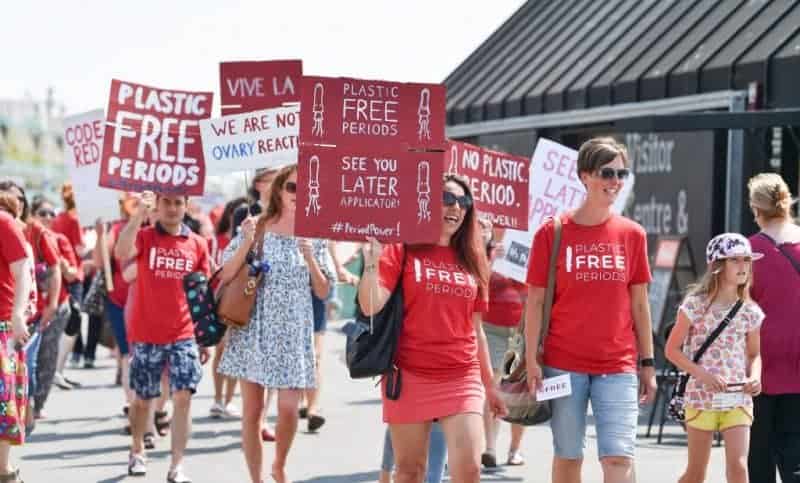
12 years left – who will be the next pioneers?
The IPCC’s message is clear: if we do not keep global warming to a maximum of 1.5C, by 2030 the consequences will be catastrophic.
It is absolutely critical that cities, governments and businesses challenge the status quo and devise innovative solutions to tackle global warming. We’re on the lookout for the pioneers who will be driving positive change in 2019 – are you one of them?
If your organisation is helping to build a more sustainable future and looking to increase its impact, get in touch and let’s team up in the fight against climate change.



